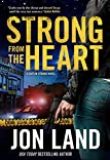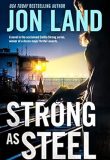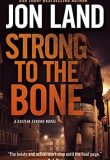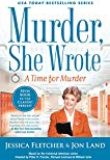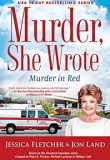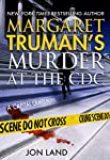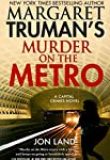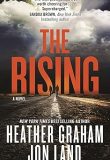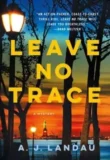Author Interview: Jon Land
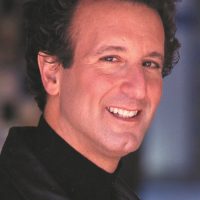
The books shown on the left are by Jon Land. Click on the cover to order.
This interview was conducted by Douglas R. Cobb on June 28, 2010.
Douglas R. Cobb: Jon, you’ve written several other excellent novels before the ones featuring Texas Ranger Caitlin Strong, including Day of Delphi, Dead Simple, The Pillars of Solomon, and Blood Diamonds,
just to name a few.
I was wondering if you could tell our readers about which authors have been your biggest influences, what you’re currently reading, and when and how you got interested in the history of the Texas Rangers and thought a woman Texas Ranger’s exploits might make for a good series of novels?
Jon Land: First off, my biggest influences are the writers who made me want to do what I do: Stephen King, Robert Ludlum, Clive Cussler and David Morrell. I fell in love with their books while in college because I couldn’t put them down. They’re all different stylists but they’re all brilliant storytellers and at heart that’s what all of us are doing when we write a book: telling a story. As a fan of westerns, I’ve always been fascinated by the history and mythology of the Texas Rangers, America’s most famous lawmen. But, confession time here!, basing a series around a female Ranger actually sprung from a more analytical appraisal of the publishing industry: Thrillers are the most popular genre and 75% of all books are bought by women, but there were no recurring female thriller heroes. Plenty of mystery heroines, yes, but not in action-thrillers filled with gunplay and big villains trying to do big, bad things. So making Cailin Strong a Texas Ranger seemed like the perfect fit.
Douglas R. Cobb: Historically, women have not fared all that well when they’ve joined the Texas Rangers. Did you have a specific goal in mind when you decided to create a positive portrayal of a modern-day female Texas Ranger? Why do you feel women haven’t had success in the past?
Jon Land: Let me answer the second question first. I think the reason women haven’t fared too well is that for nearly 200 years the Rangers have been a male-dominated culture reared on the frontier ethic where men have one role and women have another. That might certainly sound sexist by our modern day standards, and it is, but the Texas Rangers owe their success in large part to their well-earned mythos. These are arguably the last remaining old-fashioned lawmen in the United States whose attitude and approach remain remarkably intact. They don’t ride horses anymore, they ride trucks, cars and SUVs. But their mindset is the same and it’s difficult in that mindset to be open to women operating in the same capacity as Rangers. Moving to the first question, I didn’t really have a political agenda when I developed Caitlin. My purpose was to create a female action series hero, a female Jack Reacher so to speak. Making her a Texas Ranger gave that notion credibility and making her a fifth generation Ranger explains why she’s so accepted when other women who’ve tried to follow the same path have been shunned.
Douglas R. Cobb: You live in Rhode Island currently, Jon, right? But it seemed as I was reading Strong Justice that you had either lived in Texas, or that you must have done a lot of research about its history, cities, and way of life to write so convincingly about it.
Have you ever lived in Texas, or is the realism of the novel more the result of plenty of time-consuming research?
Jon Land: (Laughs) Yeah, Google’s a remarkable thing! My late great agent, Toni Mendez, also represented Milton Caniff who called himself “an armchair Marco Polo.” He never went anywhere, but wrote about everywhere. I have toured Texas but the state is so vast, and the places Caitlin visits so random, that it’s impossible to see everything I need. The best trick of research is knowing who to call. For example, in STRONG JUSTICE I asked a musician-writer friend of mine named who lives down there where locals would be a teenage boy his first pair of boots. He told me Allen’s Boots in Austin, so that’s where Caitlin buys Cort Wesley’s son Dylan his 15th birthday present. What I’m trying to do with this series is establish the same atmosphere and sense of place like the great James Lee Burke does in his Dave Robicheaux novels in evoking New Iberia and the Louisiana Bayou. I think that adds an incredible amount of texture to the fabric of the story and characters. But as a storyteller I don’t want to overdue it, always reminding myself that setting functions as a vehicle of story and not the other way around. So it’s almost entirely a matter of research intermixed with places I’ve actually been to and have learned about throgh primary sources.
Douglas R. Cobb: Before I get to some questions about your latest Ranger Strong novel, Strong Justice, I’d like to ask you a couple of questions about your first one, Strong Enough to Die. I’d like to know how you came up with the title, and could you please tell our readers a little bit about what it’s about?
Jon Land: Wow, great question! The title came from the old saying about trees that don’t break in a storm because they’re strong enough to bend. So I was going to call the first book STRONG ENOUGH TO BREAK, but STRONG ENOUGH TO DIE seemed so much stronger. The idea was to brand the series with STRONG ENOUGH TO blank, but we (the publisher and I) felt that would be too confusing, so we opted just to always have “STRONG” somewhere in the title. As for the first book itself, it opens with Caitlin having left the Rangers a few years back just before her husband was killed in Iraq. Then it turns out he wasn’t killed at all, just made to “disappear” and was tortured. Finding the men behind that becomes the driving force of the book, a terrific plot point to launch a series since everything is so personal and thus character-driven. I think the biggest weakness of books in general and thrillers in particular is the lack of depth in the characters, heroes who are defined as much by their flaws as their strengths. In STRONG ENOUGH TO DIE, you see both unfold in Caitlin as she takes on the Haliburton-like company behind the torture of her husband. It brings her back to the Rangers, back to herself.
Douglas R. Cobb: In Strong Enough to Die, you introduce the character of Cort Wesley Masters, who also plays a prominent role in Strong Justice. He’s been involved in the past with the wrong side of the law, and his wife (Maura Torres) gets murdered as she opens up her front door, before Strong can do anything to stop the killer – though she is able to save the lives of her two sons, Dylan and Luke, forging a bond between them and her.
Why choose someone with a criminal past for Ranger Strong to form a relationship with, and do you foresee more sparks to fly between the two of them in future books in the series, or did they only hook up because both are connected by guns and violence?
Jon Land: That’s another great question! First and foremost, involving Caitlin with an outlaw was about coloring the characters in shades of gray instead of black and white. Both Caitiin and Cort Wesley have their demons and vanquishing them, or at least learning how to cope with those demons is what the books are all about. In their hearts, they’re both old-fashioned gunfighters transposed into modern times. But if you look a little deeper, below the surface, you’ll see that what I’ve actually done is reversed the traditional paradigm. In classic westerns, like SHANE or HIGH NOON, it’s women who try to tame the heroes, try to make them put away their guns. In this series, Cort Wesley’s the one with two kids he’s struggling to raise, while Caitlin’s the one who can’t put away her guns. This is a theme I explore more and more as the series continues, especially in the third entry for 2011 STRONG AT THE BREAK. I didn’t really plan it that way; it just evolved in the course of the writing and that’s when I know I’ve got something–when the characters do the writing and make the decisions for me.
Douglas R. Cobb: In Strong Justice, Texas Ranger Caitlin Strong is on a mission to bring to justice whomever is responsible for the rapes, dismemberment, and deaths and more than four hundred women, Las Mujeres de Juarez. Cort’s son, Dylan, helps rescue a young teenager, Maria Lopez, who is trying to escape from the life of prostitution that she’s been forced into by Marcerio, an evil steroid freak of nature that some people call El Demonio, or the Demon.
I’ve heard of and been fascinated by the horrendous fates of the Women of Juarez for several years now. Could you tell us when you first heard about them, and what made you decide to write about them?
Jon Land: It was my brilliant editor and agent, Natalia Aponte, who mentioned the murders to me once and it kind of stuck in my head. Made for the perfect plot point in STRONG JUSTICE because great heroes are made by great villains, and what better villain for Caitlin to go up against than the worst serial killer ever? Writing is all about fantasy, having our heroes do in fiction what can’t be done in fact. That’s why people love thrillers, because the good guys win and villains like Bin Laden always lose. It explains the fascination with superheroes, Superman fighting the Nazis in World War II. Caitlin is no superhero, but she’s still someone who makes us feel safe and protected from the people out to hurt us and ruin our lives.
Douglas R. Cobb: One aspect about your Ranger Strong novels that I especially like are their blending the exploits of fictional and real Texas Rangers from the past into the plot. The accounts (though fictional) of Caitlin’s grandfather’s adventures against the efforts of Al Capone’s Chicago Outfit to expand their territory into the made-up but representative town of Sweetwater, Texas, show where Caitlin gets her guts and determination to battle against injustice wherever she sees it. Why did you decide to include in your novels this blend of the present and the past?
Jon Land: Interestingly enough, it wasn’t something I consciously planned; it was more like it evolved once I got into the writing mainly because I think the heroic, and yet dark, past of the Rangers kind of mirrors Caitlin’s own ambiguity. For all their wondrous exploits, the Rangers evolved in the brutal times of the Texas frontier when coming up against Mexican bandits and renegade Indians forced them to fight fire with fire so to speak. But an even more important reason for weaving in Ranger history and lore is to show how little things have actually changed. Different names, different villains, but ultimately the battles are the same. In STRONG JUSTICE, for Caitlin’s legendary Ranger grandfather Earl Strong it’s oil in the 1930s while for Caitlin it’s drilling for water that sets everything off. To paraphrase Faulker, the past and present are so intrinsically linked, they’re almost the same thing.
Douglas R. Cobb: Do you see yourself as a liberal voice, because of the topics you explore about what’s wrong in our society, among your perhaps more conservative thriller writer contemporaries?
Jon Land: Another great question! Man, you are on a roll today! That’s exactly the way I see myself. As much as I like my fellow thriller writers, several of them are slightly to the right of Attila the Hun with their television sets preset to FOX News and their DVRs programmed to record Glenn Beck. They ignore the terrible damage the Bush-Cheney years did to this country and were a lot more happy with two draft dodgers waging war from the White House. In his farewell speech, Eisenhower warned of the dangers of the Military-Industrial Complex and truer words were never spoken. Read that speech today and he could be talking about Haliburton, Big Oil, and just how hard such agendas make getting anything at all done with one entire political party in the pocket of big business, in business only to stop the party in power from getting anything worthwhile done. You want villains, look at today’s Republican party.
Douglas R. Cobb: Billionaire Hollis Tyree III, whose grandfather had some dealings with Texas Ranger Earl Strong, Caitlin’s grandfather, has a noble goal. He wants to drill for water in Tunga County, where he owns land, and use it to make sure Texas, California, and other Western states always have enough water to be able to supply the rest of America with crops we’ve come to depend upon. Water and it’s growing scarcity is a topic many Western states are very concerned about now. But, what happens to the residents of the small town of Albion, Texas, twenty miles from where Hollis’ men are drilling, and why does Ranger Strong become interested in Tyree’s activities and motives?
Jon Land: Well, as the saying goes “The road to hell is paved with good intentions,” and in the case of Hollis Tyree’s water project his drills hit something that poisons the water supply for that small town and turns people crazy. As Caitlin begins to put things together, she realizes Tyree has inadvertently unearthed a weapon capable of wreaking incredible havoc. It goes to ambiguity again. Hollis Tyree really wants to do good but in his heart he’s all business and nothing’s going to stop him from accomplishing his goals, even if that means covering up the truth in Albion. No villain, real or imagained, wakes up in the morning intending to do evil. They believe they’re doing right and that’s what makes them truly scary.
Douglas R. Cobb: Who is Colonel Renaldo Montoya in Strong Justice, and why does he believe he’s destined to bring America to its knees?
Jon Land: Montoya is the renegade former leader of the Mexican Special Forces who becomes a revolutionary since his Indian heritage makes it impossible for him to rise above the rank of colonel. His desire to bring America to its knees through a guerrilla war is all about his obsession for power, fulfilling his delusiional destiny. If he succeeds, he overcomes the limitations cast upon him by his heritage, overcomes them en route to taking over Mexico by joining forces with the drug cartels to overthrow the government. There’s a great line in first James Bond film where Bond, Sean Connery back then, looks at Dr. No and says flippantly, “World domination . . . Same old plan.” That was fifty years ago now but, on a smaller scale, it’s still what motivates the true sociopath and meglomaniac. need I mention Dick Cheney again? (laughs) But seriously Montoya, and Hollis Tyree to a different extent, are projections of the danger of what happens when the wrong people gain too much power.
Douglas R. Cobb: As a writer and a member of the International Thriller Writers organization, you are part of a movement to promote the thriller genre and help it garner the recognition it deserves. Why is this important to you?
Jon Land: Because for too long our books have been lumped in with mysteries when the thriller is a distinct form with a structure all onto itself. One of the features of that form is the loner hero who can succeed where everyone else has failed, a gunman riding in from the range to save the town or, in the case of the modern day thriller, the world or the country. In that respect the thriller form evolved in large part from the classic western and that’s why I think the Strong books work so well. Becase at their heart they’re modern-day westerns and Caitlin is that lone gunman riding in to save us all.
Douglas R. Cobb: One last question, Jon, if you don’t mind. I know your next novel that will feature Texas Ranger Caitlin Strong will be called Strong Enough to Break. Can you give us an idea of when that will be coming out? And, are you working on another novel in the series now, or possibly an unrelated one, or are you busy touring to promote Strong Justice and will get back to writing when time permits?
Also, I noticed that Sony Pictures, I believe it is, has bought the rights to Strong Enough to Die, and that you were working on a screenplay for it. Are you done with it now, and could you give us any more details about when we will be able to see it, or how might play certain roles?
Jon Land: Whoa, now that’s a mouthful! First off, we’ll see STRONG AT THE BREAK in the summer or fall of 2011, and I can already tell you it’s the biggest and best in the series yet for a variety of reasons. I won’t start the next one until right around the 1st of the year but I’ve got a notion of having Caitlin investigating the massacre of the entire crew operating a deepwater oil rig. Don’t know where I’ll go with that, or if I’ll even stick with it, but books are born based on germs of ideas that grow overtime. And, yes, I have written a film script for producer Michel Shane (I, ROBOT and CATCH ME, IF YOU CAN) and a great director named Carl Franklin who did DEVIL IN A BLUE DRESS, HIGH CRIMES and OUT OF TIME. Sony’s actually got another of my scripts but a Fox TV producer is pushing Caitlin for a series on his network. I’d love to see either happen because it would really, really drive book sales. As for who plays Caitlin, if I start thinking about who might play her, I’d be setting myself up for disappointment. You know who’d be best? Whoever they end up getting who gets the film or series made!!!!!!!
Douglas R. Cobb: Those were great answers, Jon! Thanks so much for agreeing to participate in this interview. I and the staff wish you much luck and success in the coming years, and I look forward to reading and reviewing more of your novels in the future!
Ⓒ 2022 BestSellersWorld.com | All Rights Reserved | Design + Development by The Unglitch

